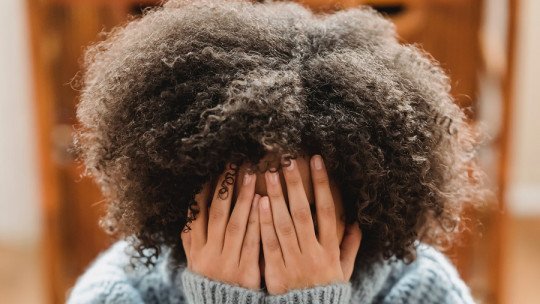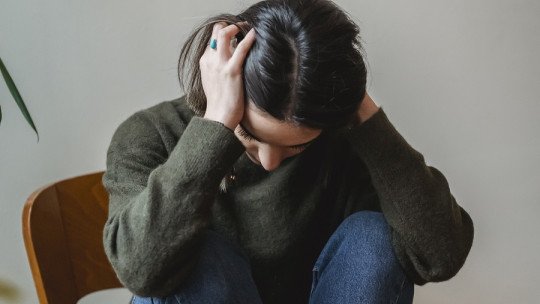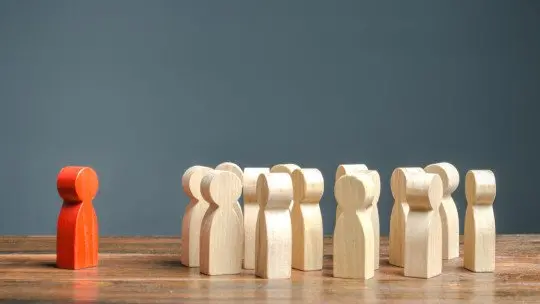
A simple and powerful phrase attributed to Einstein reads: “Solitude does not overwhelm me, it enriches me.” We know that spending time with ourselves is an opportunity to navigate self-knowledge. Being silent is one of the few ways to truly connect with our own desires and concerns. In this way, it is common for the media, social networks and meetings with friends to often state slogans that promulgate the importance of learning to be alone.
It is important to remind ourselves that working for and for our own well-being can significantly increase our quality of life. Now, it is also true that in many cases loneliness is not a choice. A person can encounter loneliness accidentally, without warning; That is, we are referring to a particular type of loneliness: unwanted loneliness.
Encountering a deep and unwanted feeling of loneliness is a common phenomenon in older people; but it is also common after a breakup with a partner, the loss of a very close family member, a migration process, distancing oneself from a group of friends, etc. It can also have many harmful effects on the person who suffers from it. In this article we will develop What are the consequences of unwanted loneliness and the relevance of asking for professional help
Why does it hurt us to feel alone?
Although we need to be alone to give ourselves the opportunity to know ourselves better, people are not prepared to live alone. We would not be completely wrong if we made a clear statement like “solitude is unnatural.” Human beings have prevailed for thousands of years, in part, thanks to their ability to come together with their fellow humans. In this way, human beings were able to develop certain skills that allowed our adaptation to the environment and our survival to be easier. Forming groups allowed us to deploy highly complex strategies to hunt and collect fruits; It also increased the possibility of successfully defending ourselves from a predator; and allowed us to reproduce to conserve the species.
In addition, emotions have also been fundamental for evolution. Having emotions, which operate as informants of the external and internal stimuli that we face, has allowed us to carry out behaviors that are aligned with what happens in reality. A classic example illustrates this very well: if a lion approaches us, we will feel fear, and from that emotion we will know that we have to flee. As they have been useful for survival, emotions have prevailed over time.
Now, human beings also feel sadness, anxiety or fear when faced with the possibility of being excluded from the group and from our interpersonal ties Rejection by peers represented, at some point in our phylogenetic history, a danger for the species. Therefore, it is expected that people experience a host of unpleasant emotions when we are alone, even today. Next, we will develop the harmful effects that come from unwanted loneliness.
The effects of unwanted loneliness
Unwanted loneliness is triggered by various situations that can occur in a person’s life. At the same time, some populations are more vulnerable than others to feeling this loneliness. As we have mentioned, older adults are susceptible to feeling lonely more frequently.
This could be rooted in different causes, such as the loss of lifelong friends, a partner, distance from children or caregivers, or the lack of a routine that puts them in regular contact with other people
Another reason why older people tend to experience higher levels of loneliness are physical disabilities and the tendency to suffer from cognitive impairment diseases, especially if they live alone, since they disable the person from carrying out actions that put them in danger. contact with others. On the other hand, the inverse relationship has also been studied: loneliness is a risk factor for worsening health.
However, loneliness is not limited to older adults. For example, we have all recently gone through mandatory confinement due to the coronavirus pandemic. This situation has forced us to stay away from our loved ones, to find new ways to meet, to reassemble our daily routines, etc.
Numerous studies have investigated the phenomenon of coronavirus isolation in relation to loneliness. It has been found that, in this context, people who felt alone developed maladaptive emotional regulation strategies and presented more episodes of rumination than those who felt accompanied.
On the other hand, according to the literature on the subject, the feeling of loneliness is related to different psychological effects, such as higher levels of anxiety, nervousness and distress Some research associated loneliness with a greater risk of suffering from depression and dissatisfaction with life, and others found that loneliness is a predictor of cognitive decline or chronic diseases. This type of research establishes correlations between two variables, so they can hardly determine causal relationships—that is, they cannot ensure that loneliness directly causes people to feel anxiety—but this does not nullify the relevance of knowing these data.
The importance of asking for professional help
Ultimately, it is also known that loneliness is related to greater chances of suffering from a mental disorder. Loneliness can be experienced pleasantly when it is expected; but in other cases, it can also be raw and difficult to bear. For this reason, it is extremely important to recognize that, if you feel alone (and that is negatively affecting you), going to a trained mental health professional can help you achieve greater psychological well-being.








